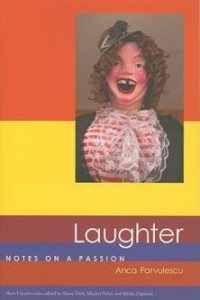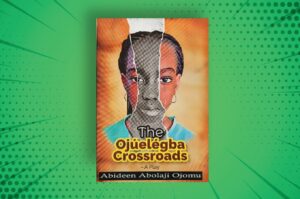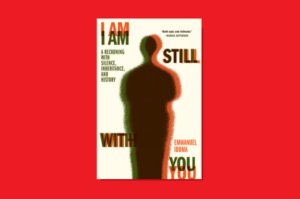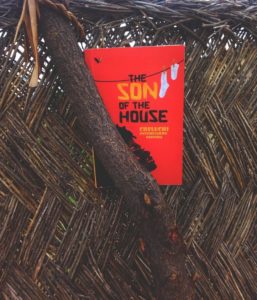 Philosophers have always been fascinated by laughter. They’ve asked all sorts of questions about it. Do animals laugh? Which part of the body is responsible for laughter? Can God laugh? What is the link between laughter and madness? These philosophers–from Plato to Nietzsche—realize one truth about laughter, that it is as strange as it is ordinary. Of all the odd things our bodies like doing, laughter is one of the most enigmatic. When we laugh, our mouths open up, our bodies shake, sometimes violently, eyes either pop out or are clamped shut while our throats bell out these noises that sound otherworldly. As Parvulescu observes, we often talk about how we are “swept by laughter,” “overwhelmed by laughter,” “cracking up in laughter,” “breaking up in laughter,” “drowned in laughter,” “faints with laughter,” and so on. What, then, is this thing called laughter that breaks, and sweeps, and kills, and drowns us? What about the feeling of laughter? It’s not quite the deliciousness of sexual pleasure, but it is pleasurable nonetheless. Clearly, laughter is strange enough to have its own philosophy. But what of a history of laughter? A politics of laughter? A feminism of laughter? What is laughter to us today? What does laughter have to do with revolutions? This brilliant little book has all the answers. It tells the story of laughter and its strange life as an object of philosophy.
Philosophers have always been fascinated by laughter. They’ve asked all sorts of questions about it. Do animals laugh? Which part of the body is responsible for laughter? Can God laugh? What is the link between laughter and madness? These philosophers–from Plato to Nietzsche—realize one truth about laughter, that it is as strange as it is ordinary. Of all the odd things our bodies like doing, laughter is one of the most enigmatic. When we laugh, our mouths open up, our bodies shake, sometimes violently, eyes either pop out or are clamped shut while our throats bell out these noises that sound otherworldly. As Parvulescu observes, we often talk about how we are “swept by laughter,” “overwhelmed by laughter,” “cracking up in laughter,” “breaking up in laughter,” “drowned in laughter,” “faints with laughter,” and so on. What, then, is this thing called laughter that breaks, and sweeps, and kills, and drowns us? What about the feeling of laughter? It’s not quite the deliciousness of sexual pleasure, but it is pleasurable nonetheless. Clearly, laughter is strange enough to have its own philosophy. But what of a history of laughter? A politics of laughter? A feminism of laughter? What is laughter to us today? What does laughter have to do with revolutions? This brilliant little book has all the answers. It tells the story of laughter and its strange life as an object of philosophy.
Author Website Anca Parvulescu








COMMENTS -
Reader Interactions